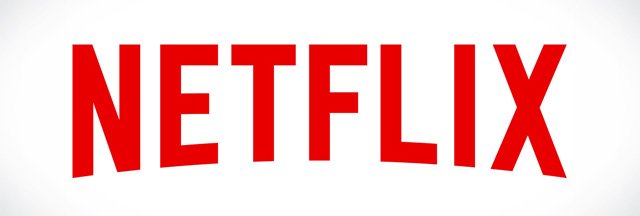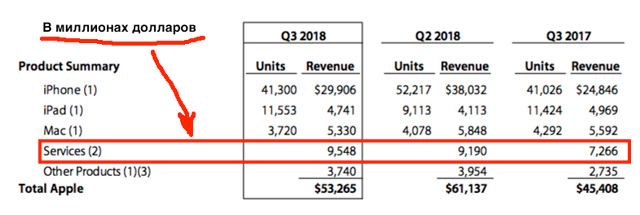Content
- When you feel sorry for money
- There is safety in numbers?
- The beginning of the end of app stores?
- Options for the development of events
When you feel sorry for money
Yesterday in the Blend episode, Epic Games courageously refused to pay Google to access users. For those who missed, I will repeat the basic alignment. Epic Games has released Fortnite, one of the most popular and commercially successful games in history. Initially, the game was released on PC, but then it was added to macOS, and later there was also support for devices on iOS.

A few months later, the developers introduced a port for Android. The presentation of the game took place as part of the event dedicated to the launch of the Samsung Galaxy Note 9. And for some time Fortnite will be an exclusive, available only to users of current flagships from Samsung. However, the point is that to install the game, you need to download a program from the Samsung (not Google) app store, which will take the installation files from the Epic Games website.

In approximately the same way, users of other Android smartphones get access to the game. They need to turn off the protection mode, which prohibits the installation of third-party applications, go to the Epic Games website and download the game there. This is, of course, a more risky option, since it is easy to fall for the bait of attackers who created a fake page.
When Epic Games CEO Tom Sweeney was asked what, in fact, was the matter, he said bluntly in an interview with VentureBeat:
There are two reasons why we do this.
First, we want to establish direct relationships with our clients. On open platforms like PC and Android this is possible. We are in contact with users without a layer in the person of a distributor.
The second reason is the economics of app stores. Today there is a split 70/30. (30% is taken by the owner of the app store) And out of 70% the game manufacturer must cover all costs associated with the development of the game, its support, marketing, acquisition of new users, etc. For most developers, these costs eat up most of the revenue. We are trying to make our software available to users in the most cost-effective way possible. This means distributing software directly, accepting payment via Mastercard, Visa or PayPal and not giving 30% to app stores.

Tom Sweeney, CEO Epic Games
With Apple Epic Games can't do anything yet, but Tom Sweeney did not miss the opportunity to voice his dissatisfaction with the unfairness of the situation. I will retell his words. Epic Games is unhappy that, in addition to the 30% tax, Apple is not missing out on the opportunity to earn money from advertising. For example, if a user wants to download Fortnite, then with an advertising line he will definitely be offered to install a sworn rival PUBG or even Minecraft. Accordingly, the company is unhappy with this state of affairs. Firstly, they feel that they are openly cashing in on them, and secondly, there is probably a percentage of users for whom the ad worked and Epic lost a client.
There is safety in numbers?
However, Epic Games are not the first to try to combat this practice. They have a successful example in front of them in the face of Amazon, Netflix and Spotify. For Spotify, and in general, 30% tax is similar to death, since the company already has a thin margin, as a result of which the service still cannot go even to zero.
If we talk about Netflix, for example, on Android new and 'returning' users cannot renew their subscription through the app. Since May 2018, there has been a redirect to the mobile version of the site.

And with Apple the streaming service has been butting for a long time. Rumor has it that for Netflix, Apple relaxed and cut their commission from 30% to 15%. However, Netflix is still unhappy. They not without reason consider themselves the coolest pretzel in their sandbox and purposefully go towards their goal – not to share profits. The first step was the absence of Netflix in the list of Apple TV, as the company does not want to be one of the many streaming services in the collection and is located next to competitor HBO. And now, judging by the information in the article on Techcrunch, since June in 33 countries the service has been testing the option of paying for subscriptions on iOS devices not through built-in mechanisms, but by transferring, as well as on Android, to the mobile version of the site.
Netflix acts like Amazon, which has been using the mobile version of its site for any purchases for quite some time. Amazon began to do this, faced with user dissatisfaction. Previously, an online store simply included a 30% duty Apple in the price tag, and it turned out that the goods on the site were cheaper than in the app.
This position of developers with bypassing payments can be compared both for Google and for Apple not even with a slap in the face, but rather with a wave of the sickle from a famous saying. Long gone are the days when Steve Jobs explained that the AppStore was not made for money, but to provide customers with a perfect user experience. For example, look at any financial statement Apple.

The revenue from the services is higher than from the sales of Macs. Of course, Apple you have to spend money on keeping the store running, there are probably staff who follow the reviews and check the applications. However, it is clear that 30% of the rent that the company collects for any transaction within its platform covers all costs with interest.
The beginning of the end of app stores?
Epic Games, Netflix, Spotify, Amazon dared to encroach on the holy of holies. Both Google and Apple, in the sweat of their brow, sparing no effort, are building their ecosystems not so that a bunch of greedy programmers who have squeezed a 'pitiful' 30% ruin everything.

However, the companies listed above are more likely an exception to the rule than an emerging trend. Take Fortnite, for example. You don't have to be seven inches in the forehead to guess that Samsung definitely paid Epic Games for the right on their wedding night to Android. But this is an extremely rare situation. Usually, the opposite is true – developers pay manufacturers money to have their application icon on the start screen. However, when it comes to Fortnite or Netflix, it is users who have a formalized need for company services, and for the sake of getting them, customers are willing to endure significant inconvenience. And then the question arises whether users will bother with paying on third-party sites for the sake of regular programs? In my opinion, it is extremely doubtful. After all, Netflix and Epic Games have brand credibility. By entering bank card details on their website, you expect less trickery than paying for something on the page of the “match three” toy of the Saratov brick factory.
Options for the development of events
In fact, there are not many options for the outcome of this situation, but some are very interesting.
The first option is the most boring. Google and Apple will let the rebel developers go, and the rest will stay with them. After all, app stores for small and medium-sized businesses are the most effective way to make money on your product. 30%, of course, the quitrent is quite significant, but there are still no other options.
The second option is partially similar to the first. Apps will begin their journey in app stores, and once they have acquired a certain margin of safety, they will go free floating. However, there is already room for maneuver. I do not think that Google and Apple such a development of events to their liking, since it is clear that the 'fattest' comrades will leave. For this reason, there is an option that companies will either reduce the commission, as they already did in Microsoft, or, more likely, make a progressive scale, when rates will be reduced upon reaching a certain level. Perhaps this option will suit many developers, since the presence in the official store has many advantages.
I read the third option on Fred Wilson's blog. It is fair to say that the market gravitates towards order. Users do not like to rummage through the Internet and search for something. We are already accustomed to service aggregators – flight search, app stores, hotel reservations, ordering food delivery, the list goes on. Mr. Wilson rightly points out that Netflix has a lot of brand power, which it can use at its own discretion. Let's say a company can offer itself as a guarantor platform for payments. And customers will pay for the match-3 toy not on the site of the Saratov adobe factory, but on the Netflix site. Or Netflix will offer to use their account to sign up for third-party apps. These are interesting options.
However, the development could be even more exciting if Netflix starts offering compilations from the services. For example, a client will spend not 10, but 15 dollars, but will receive not only a month of TV series, but also something there that users pay for in games like Clash of Clans, or access to an online library, etc.
There is one more point here. All these perturbations in payment are important primarily for developers and owners of app stores, but ordinary users do not benefit from this. Accordingly, to motivate the latter, either prices will fall, or the bundles of services in the package will grow. And this may already be interesting – paying less or getting more for the same money is always nice
This development of events poses a direct threat to Google and Apple, therefore, I believe companies will try to severely suppress such liberties. Probably, the set of rules for the placement of applications can somehow change.
I would ask the developers, if there are any, to talk about their attitude to the tax from app stores and how you solve this problem, if you do. I suppose there is no point in contacting simple commentators, since most of the data on your bank card is not something that a third-party site, and even Google and Apple do not trust.
Back to content >>>
